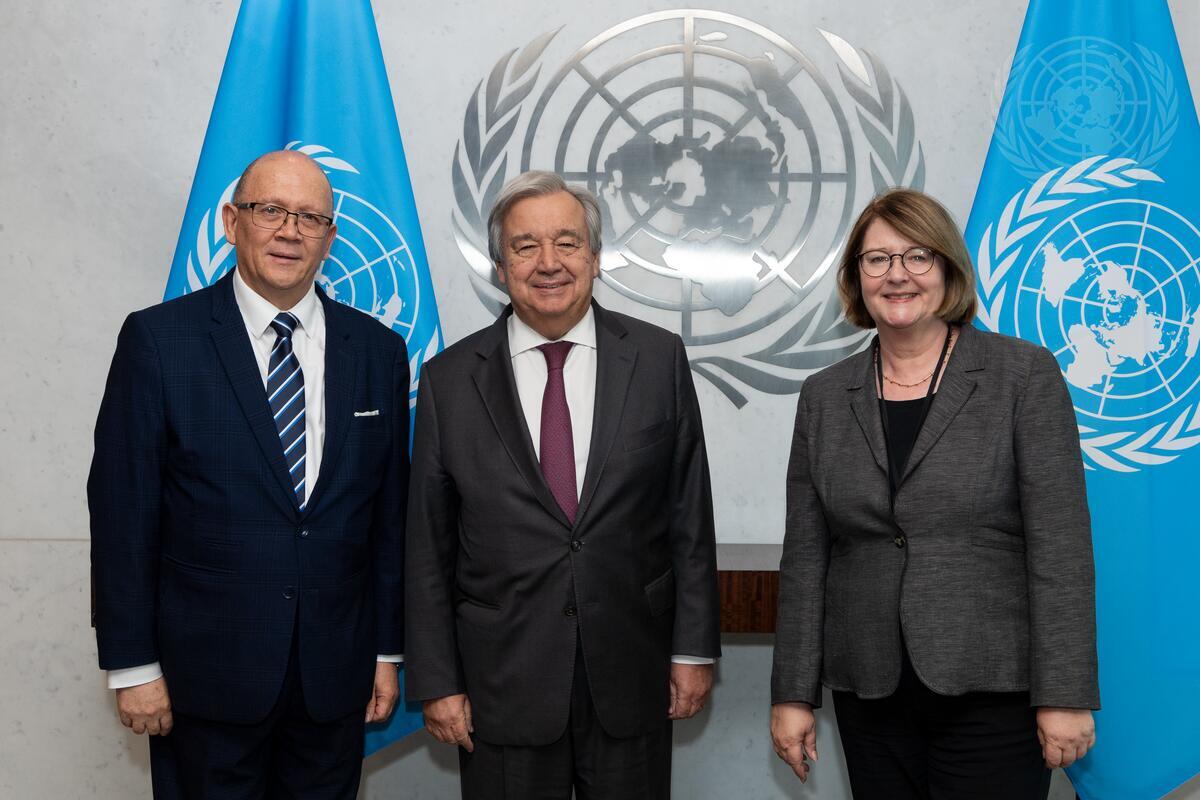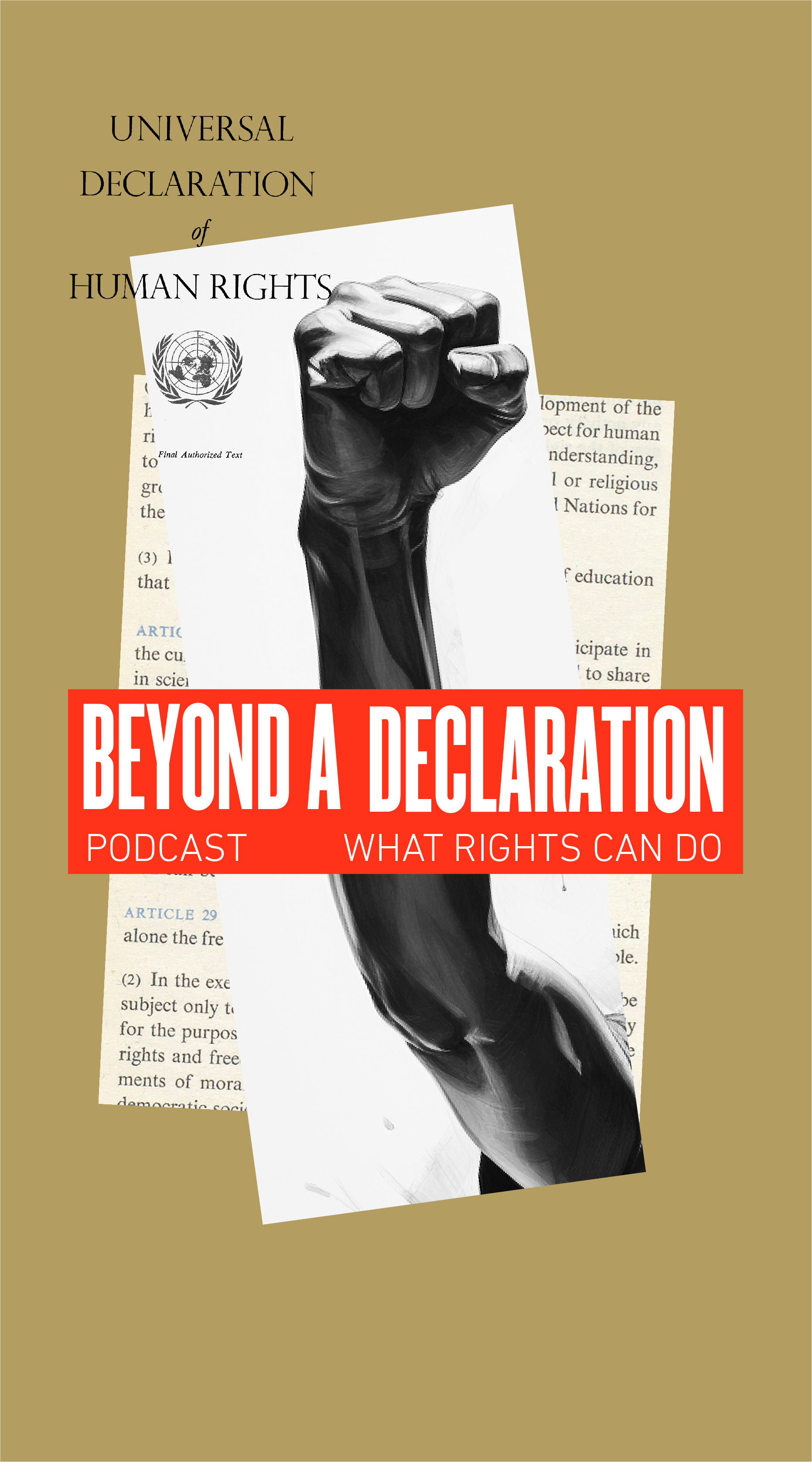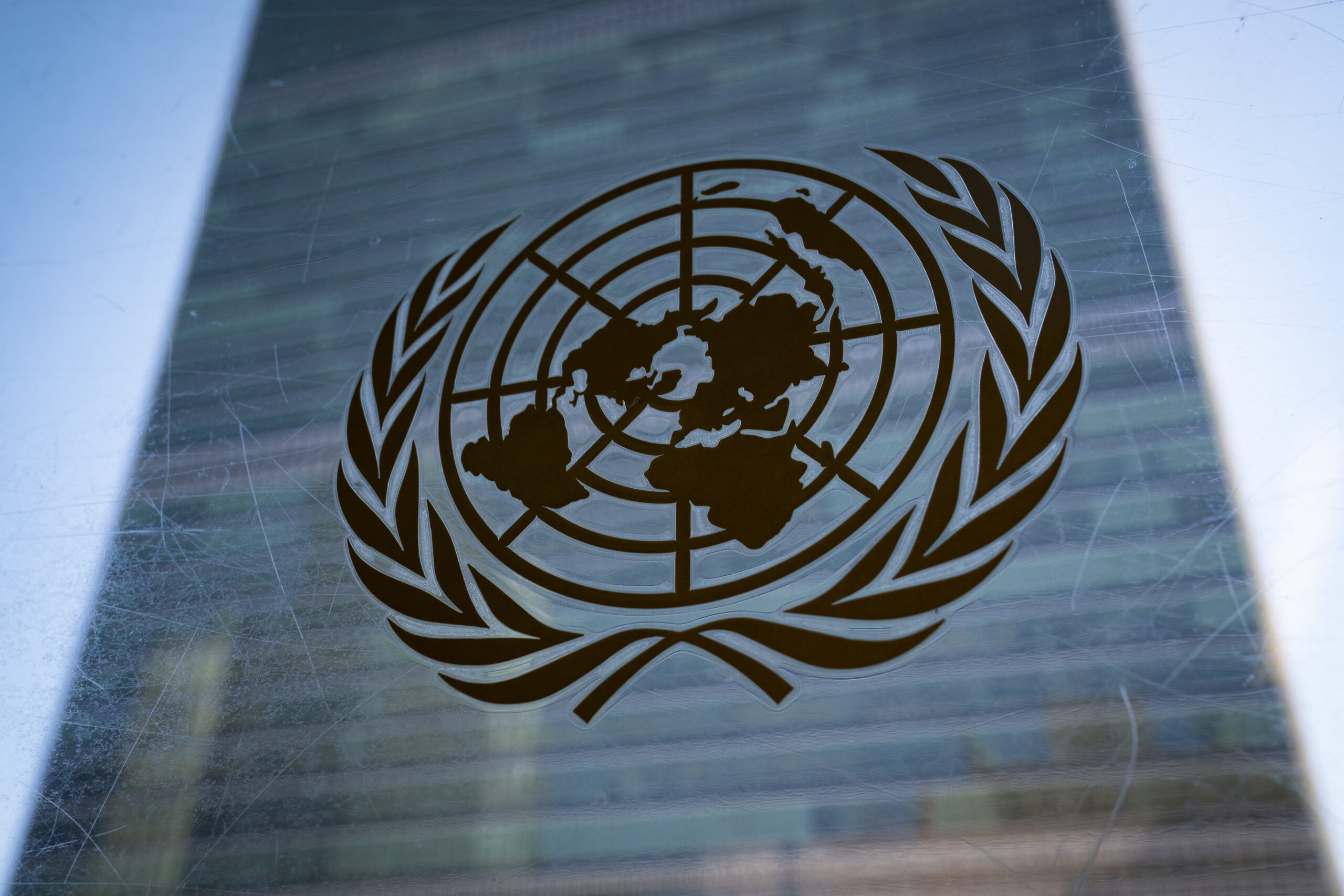To say that 2020 has been an exceptionally difficult year is an understatement. With more than 142 million people infected and more than 3 million deaths already, the much hoped-for end of the COVID-19 pandemic is nowhere in sight with the worst virus outbreaks now happening in countries with health systems that were strained even before the pandemic. There is also a surge in cases in some countries despite undertaking massive vaccinations.
The COVID-19 pandemic has triggered a global crisis like no other, and the economic impact is hard to quantify as events are still unfolding. The equivalent of 130 million jobs have been lost in the past year, and the estimated 2 billion people working in the informal economy face continuing precarity. The World Bank now foresees the number of Covid-19-induced ‘new poor’ to rise to 119-124 million. There is a new-found appreciation of the importance of social protection systems, and yet 4 billion people worldwide are living with no social safety net to speak of.
This is the context of this year’s UN Economic and Social Council (ECOSOC) Forum on Financing for Development, also known as the FfD Forum, which took place from April 12-15, 2021. While the FfD Forum is convened by the United Nations, it is not purely a UN meeting, but also includes the Bretton Woods institutions, the World Trade Organization (WTO) and other non-UN entities. It is an intergovernmental process that aims to advance the dialogue on solutions for financing the COVID-19 recovery and the Sustainable Development Goals (SDGs) as well as to follow up on the Addis Ababa Action Agenda, the global financing framework that supposedly seeks to align policies with economic, social and environmental priorities.
A real-time test for multilateralism: false positives!
UN Secretary General Antonio Guterres sounded very critical at the opening of the FfD Forum when he said that “no element of our multilateral response has gone as it should” since the pandemic began more than one year ago. The UN Chief said multilateralism is failing the test of advancing an equitable global response and recovery from the pandemic, and raised serious concerns around vaccine hoarding by rich countries, explosion of the global debt crisis and the intensification of the climate crisis. He challenged leaders of governments and multilateral institutions to “provide ambition and momentum to finance a resilient, inclusive, equitable and sustainable future for all.”
A 13-page FfD Outcome Document that was virtually negotiated months before the actual FfD Forum was adopted by consensus, which articulated agreed analyses of the major challenges towards realizing a “clean, green, inclusive, sustainable and digital” recovery from the pandemic through multilateral cooperation. It is revealing, though, that some governments expressed their dissatisfaction over specific pronouncements that they said were contrary to their “national interests.” Some also questioned the FfD Forum’s mandate to discuss topics such as fossil fuel phaseout, the impacts of economic sanctions and others despite having an overarching mandate to follow up on the implementation of the 2030 Agenda for Sustainable Development which comprehensively covers environmental, social and economic pillars of development.
Civil society groups however, decried the outcomes as “all rhetoric and no action.” Apart from statements that acknowledged the gravity of the multiple crises exacerbated by the pandemic and how these negatively impact on the most vulnerable populations especially in poor countries, world leaders merely affirmed announcements made earlier by the IMF-WB, G20 forum of the world’s largest economies, and the Paris Club of official creditors.
It must also be clear that while these statements are meant to guide international policy regimes, they in no way impose binding commitments and obligations on governments and multilateral institutions. And so we ask: will these measures really usher in durable solutions to the multi-layered crises, or are these initiatives just “‘false positives” meant to inspire confidence that the current way the world is organized will deliver the much-needed systemic changes that will lead to a just recovery?
Here are some of the key outcomes of the Ffd Forum:
- Leaders resolved to ensure timely access to COVID-19 vaccines for all countries and called for increased funding for the ACT-Accelerator (Access to COVID-19 Tools Accelerator) and its COVID-19 Vaccine Global Access Facility (COVAX).
While laudable as a rallying call, the global leaders’ inability to look at the structural barriers that hold up equitable access to vaccines and much-needed medical supplies is telling. Calling on rich countries to increase funding for these facilities is a way to bring much-needed vaccination programs to countries who otherwise won’t be able to afford the costs of protecting their population. But unless intellectual property rules (IPR) that allow giant pharmaceutical companies to maintain monopoly control over the production, supply and distribution of medicines are suspended, poor countries will be doomed to wait for charitable donations (read: surplus, unused vaccines from rich countries that bought more than what they need simply because they can afford it) or sink into further debt to be able to purchase life-saving vaccines and medical supplies.
- To address the global debt crisis, and “help” countries free up resources for their pandemic response, the Debt Service Suspension Initiative (DSSI) for 73 of the poorest countries in the world was extended through December 2021.
This temporary suspension of debt service payments to official bilateral creditors would mean the poorest countries need not worry (at least until the end of the year) about having to make a difficult choice between paying off their loans by dipping into their national budgets or focus on providing much-needed social services and to their citizens hit hard by the economic fallout due to the pandemic. This “altruistic” initiative by the way, excludes Middle-Income Countries and reflects an acute lack of understanding that these are where 60% of the world’s poor may be found. This DSSI also does not cover the participation of private creditors such as banks and other international financial institutions in debt relief initiatives.
This policy response does not even come close to matching the gravity of the global debt crisis. It is essentially the richest countries telling poor countries, “we understand you’re having a hard time so you can just resume paying off your loans next year. And by the way, we have stricter terms for the new loans you’re applying for to make sure you are able to pay us back.” This is both arrogant and callous as it dismisses the fact that poor countries are poor due to centuries of plunder by colonial powers. This pillaging continues today with unfair trade and investment deals that result in a net transfer of resources from the people of the global South to the corporations of the global North. This is also the result of illegitimate debts incurred by corrupt governments for programs and projects that did not really benefit the people.
Debt cancellation, restructuring and other debt workout mechanisms that some developing countries and civil society advocates have been pushing for as key to a sustainable recovery from the pandemic did not gain needed support to be turned into policy directives.
- The IMF announced it was allocating USD650 billion in Special Drawing Rights (SDRs) to support the global recovery from the COVID-19 crisis. The SDRs are the reserve currency created by the IMF to supplement the existing money reserves of member countries.
While the USD650 billion SDR allocation is a much-needed cash infusion, it is insufficient in the face of the enormity of the world’s problems. There are also concerns regarding the inequality of how these SDRs will be distributed. Because SDR allocations depend on how much member countries have contributed to the IMF, rich countries that contribute more will have bigger SDR allocations than poor countries who have contributed less. There are strong calls for the IMF to set-up mechanisms for a “voluntary redistribution” of unused SDRs from developed to developing countries possibly new loans with stricter conditionalities but these have yet to be acted on.
- World leaders continued to urge developed countries to fulfill still unmet aid commitments made almost 20 years ago to provide 0.7% of Gross National Income (GNI) for Official Development Assistance (ODA) to developing countries. Only a small number of developed countries have ever reached this target. But ODA continues to be relevant for the global South as the need for aid is rooted in centuries of historic injustice, and this is the context for insisting that donors live up to their commitment.
Despite stagnating ODA contributions through the years, rich countries had the audacity to flaunt their continued contributions to international development cooperation efforts despite the pandemic. The European Union, for instance, said it was disappointed that the FfD Forum chose to stress the 0.7% GNI commitment but failed to recognize that its 27 member states already provide 46% of global aid. The United States, meanwhile, also touted the fact that it is the largest ODA provider giving USD34.4 billion annually.
This, while in the same breath expressing an openness to continue discussions around revising how foreign capital flows are measured to now include ‘all resource flows in support of sustainable development’. This brings to fore the debate on counting and using ODA (which is public money) to guarantee private investments, expenditures in security services (to thwart perceived threats to rich countries’ interests abroad), and refugee costs that rich countries spend ‘assisting’ refugees in their countries. Put together, these will inflate figures and show that rich countries have fulfilled their aid targets.
- In terms of domestic public resources, the FfD called on the United Nations to support countries in building capacity for the effective and efficient taxation of the digital economy and to strengthen cooperation to combat illicit financial flows (IFF). These refer to “cross-border transfers of money that is illegally earned, used or moved” either through tax and commercial practices, illegal markets, theft and terrorism, and corruption.
This vague reference to IFFs depoliticizes the fact that transnational corporations engage in intra-firm profit shifting, tax avoidance and other practices that siphon resources out from developing countries. This means developing countries actually lose more than what comes in through investments, loans and foreign aid. This phenomenon is facilitated by a system that enables corporations and individuals to move the money abroad by capitalizing on overseas bank secrecy laws and loose financial regulation.
- International trade is still upheld as an engine for development, and leaders committed to ensure that any emergency trade measures designed to tackle the COVID-19 crisis are “targeted, proportionate, transparent, temporary, and will not create permanent barriers.”
This is the response to calls for a moratorium on Investor-State Dispute Settlement (ISDS) provisions in all trade and investment agreements that empower corporations to sue governments at the WTO if local or national policies affect corporations’ ability to sell their products competitively. At a time when countries are struggling with public health and severe economic challenges and developing country governments are taking steps to ensure supplies of food, medical equipment and other health care services, the threat of ISDS claims looms large. If found guilty of overriding trade and investment provisions, governments could be ordered to pay large sums to compensate foreign investors.
The FfD Forum concluded with a speech on how COVID-19 is an “inequality virus” that exacerbates vulnerabilities around the world. It would seem though, that the pandemic has also severely reduced the space for reimagining and recreating a world that veers away from the destructive path of neoliberal economics. The FfD Forum was supposed to be the space for addressing systemic issues in a comprehensive manner. If any, the Forum consolidated the perpetual disconnect between siloed approaches and the need for a comprehensive view on the systemic issues besetting financing a just and transformative recovery. It was, and still is, business as usual.
Mutation of the inequality virus
The brokenness of the world’s economic and financial systems has never been clearer as it is today. More than a year of pandemic-driven lockdowns, border closures and mobility restrictions continue to exact a heavy toll as these deepen long-standing economic, racial and gender divides. But in the midst of the worst economic crisis since the Great Depression of the 1930s, there has also been a wealth surge among the world’s richest people who have profited during the pandemic. An Oxfam report confirms how the current economic system is enabling a super-elite rich to continue to amass wealth while billions struggle to make ends meet.
Ending poverty and inequality as well as paving the way for a just and transformative recovery from the multiple crises laid bare and aggravated by the pandemic must decisively address the systemic and structural roots of inequities in wealth, power and opportunities between and within societies. Enabling this would require thoroughgoing efforts at democratizing global economic governance. Now is the perfect moment for governments and institutions of multilateral cooperation to reorient economies away from extractive, speculative and profiteering activities toward ecologically sustainable production, distribution and consumption systems. The time is ripe for policy choices that divest from harm and invest in care.
Seventy-five years since its founding, the United Nations is yet to realize its potential of becoming a place of transformation. With its ‘one country, one vote’ rule, the UN is where all countries and especially the countries in the global South, have a voice. But it has not been as effective as it needs to be in finding concrete solutions to the structural drivers that create and maintain poverty, underdevelopment, inequality and injustice. It has been severely criticized for becoming beholden to corporate interests.
Civil society organizations recognize the importance of bringing the financing for development agenda back to its raison d’etre of providing a multilateral response to the structural shortcomings of the international economic and financial architecture at the macro level. This is not just a matter of solidarity, but also of accountability. Despite its many deficiencies, the UN has the expertise, agencies and mandate, but it urgently needs the political will to crystallize and operationalize norms and policy directions for these macro solutions.
These are indeed trying times when the true worth of international solidarity is put to the test. As one head of government said, “global solidarity is enlightened self-interest. This is not a time to step back, but to step up.”
Tetet Nera-Lauron is a consultant with RLS-NYC.
What the recording of our event “Financing for Development: A Little Shop of Horrors?” and view the visual notes from the event.



